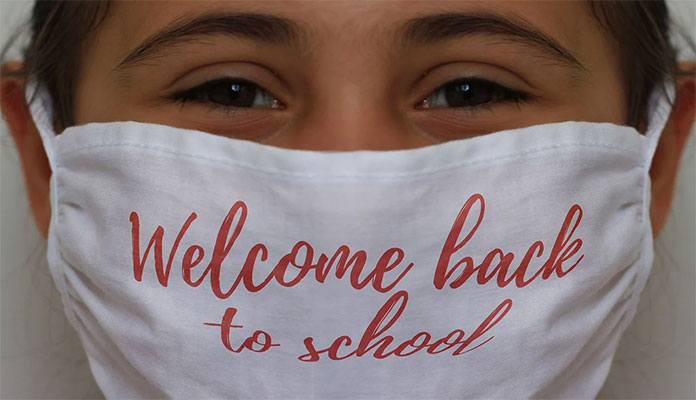
OCEAN GATE – School officials here are the latest to ask that the governor re-evaluate the need for masks when school resumes in September.
Ocean Gate School started the 2020-2021 school year with five days a week in-person education, transitioning to a full day on April 19, according to a letter from Superintendent Melanie Patterson and Board President Richard Casey. The letter was sent to Gov. Phil Murphy asking for the mask mandate to be reconsidered.
“We created a COVID-19 safe school environment with the help of our families and the school community’s stakeholders through proactive communication and multiple safeguards,” they said. “We helped our teachers and staff members attain appointments for the COVID-19 vaccine as soon as possible while continuing to maintain a safe instructional environment for everyone. We can proudly say that our school community has truly come together to create the safest instructional environment possible for the Ocean Gate students and staff.
“We believe we are at a point when the state mandates regarding students and staff wearing masks at school, both indoors and outdoors, could be responsibly re-evaluated. We hope to be able to continue to make informed decisions based on the needs of our local school community,” they said.
As the number of people contracting coronavirus has gone down, the world is starting to open up. Part of the reason numbers are going down has to do with vaccination. Children 12 and older (middle school and high school) are able to be vaccinated. The rest (preschool through fifth or sixth grade) can not. Ocean Gate School is an elementary school.
Medical professionals have continually advocated for the use of masks to slow the spread of COVID-19. If the person wearing the mask has the virus, the mask blocks the spread to others. No vaccine is 100% effective, and people can be carriers of the virus without showing symptoms. Supporters of masks have said that wearing them protects the most vulnerable, including special education students. They also don’t want children to bring the virus back home to elderly grandparents or the children’s pregnant mothers.
Murphy’s changing regulations have been based in part on how many people are being hospitalized. Critics have surmised that the reason mask orders are going away is not that the pandemic is over, but because there is room in the hospital if you do get sick.
Officials at other districts, such as Central Regional, Barnegat, and Toms River have asked the governor to waive the mask regulation in September.
The most vocal opposition to the masks have been from administrators and politicians, as opposed to teachers and staff who are in the classrooms every day.
The New Jersey Education Association sees masks as important to keep educators and students healthy.
“As we have since last March, NJEA continues to advocate for taking all necessary measures to protect the health and safety of all students and staff,” said spokesperson Steve Baker. “Current medical guidance continues to recommend masking for all unvaccinated individuals, a group that includes the vast majority of the students in our public schools. We should not take any risks or shortcuts as we work to emerge from this pandemic.”
The governor announced that the indoor mask mandate was dropped as of May 28, just before the Memorial Day weekend. Critics of the governor said he was giving in to the pressure of the tourism industry.
Those who have not been vaccinated were urged to continue to wear a mask at any indoor public setting. However, nobody will be policing you, asking if you’ve been vaccinated.
Individual businesses and other entities which oversee indoor spaces may continue to require that employees and customers/guests wear face masks.
Masks will continue to be required in the following places:
- Healthcare settings and long-term care facilities
- Correctional facilities
- Homeless shelters
- On an airplane, bus and train stations and other transit hubs
- Public-facing state offices, such as Motor Vehicle Commission Agencies
- Worksites that are closed to the public, including warehousing and manufacturing facilities
The Executive Order will not extend to:
- Child-care centers and facilities
- Youth summer camps
- Public, private or parochial preschool program premises and elementary and secondary schools, including charter and renaissance schools
- Worksites that are not open to the public, including manufacturing and warehousing facilities
– Alyssa Riccardi contributed to this story





